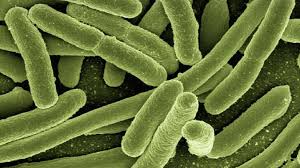Escherichia coli : New Study

Researchers have shown in a new study that genetically engineered Escherichia coli bacteria can be turned into self-powered chemical sensors that interface directly with electronics.
- It is commonly known as E. coli, is a type of bacteria that can be found in the intestines of humans and animals.
- It is a rod-shaped bacterium of the Enterobacteriaceae family.
- While most strains of E. coli are harmless and even beneficial, some strains can cause illness and infections.
- Some kinds of E. coli can cause diarrhea, while others cause urinary tract infections, respiratory illness and pneumonia, and other illnesses.
- It can be transmitted to humans through contaminated food, water, or contact with fecal matter from infected individuals or animals.
- The most familiar strains of E. coli that make you sick do so by producing a toxin called Shiga.
- This toxin damages the lining of your small intestine and causes diarrhea.
- These strains of E. coli are also called Shiga toxin-producing E. coli (STEC).
- The most common symptoms of E.coli infection include fever, persistent diarrhoea, bloody diarrhoea, and vomiting.
- Most E. coli infections are self-limiting and resolve on their own without treatment. However, it’s essential to stay hydrated during the course of the illness.




